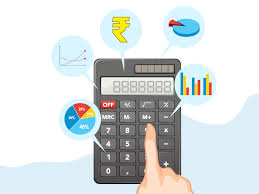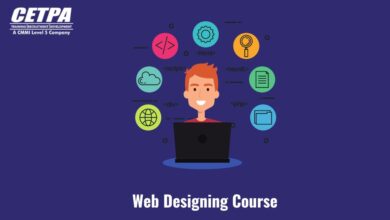Essential Skills for Excellence in Early Childhood Education

There is no doubt that early childhood education is the new norm these days. It has become such an essential step that there are curated college courses these days that enable an aspiring educator to put their best foot forward.
If we lean a little on the predictions, over the next few years, the requirement for early childhood educators will surge as Australia is witnessing a greater employment rate.
Working in this sector can be one of the biggest and most gratifying experiences in someone’s life. The childcare workers play a pivotal role in developing fun and educational activities for young children while also ensuring their safety.
But what are the skills that are must-learn for excellence in early childhood education in Australia ? In this blog, we will take a look at that.
Skills and responsibilities of an early childhood educator
If you wish to assist and provide the next generation with the ideal beginning of life, you need to be prepared to shape their mental wellness, education, and social skills. In such a scenario, both soft and hard skills are extremely crucial for early childhood educators to succeed as experts in their area.
An educator who concentrates particularly on having hard skills can give high-quality instruction. However, they may struggle to manage a class with students who learn at different paces, perfectly deliver and plan lessons, and also have the students engaged in class. Then there’s another issue of teaching students the art of collaborativeness and can struggle to work with academic peers like school administrators and colleagues.
On the contrary, an educator who has great soft skills but weak hard abilities might not be as effective in the classroom but can work in other areas, such as teamwork, communication, problem-solving, etc.
Therefore, educators need to go through an all-rounded professional development regime so they can enhance as experts and make a good contribution in the area of education by developing both their soft and hard abilities.
Other valuable skills to bring into the classroom
The responsibilities and skills we have mentioned above are no doubt crucial. However, we all know that there is more to being a good educator. Here are some of the other essential skills you need to learn from early childhood education courses:
Communication skills
Kids are not always good at expressing themselves or efficiently communicating. It is one of many reasons why educators themselves need to have great communication skills. They will be required to communicate with supervisors, parents, and young kids. They will have to use the ideal approach based on the individual they are speaking to and serve as an example of strong communication for children.
These young children learn primarily through examples and stories that are relatable. Early childhood educators need to teach and explain new concepts with circumstances or occurrences that students can relate to. They should implement words and mannerisms that young minds can grasp and comprehend. You can think of it as learning a new language.
Creativity
Professional educators use creativity on a regular basis, and not always in the ways you might consider. Imagine coming up with a new game right then and there to keep the kids busy when there is an unparalleled delay in the schedule or coming up with fun ways to urge kids to clean up their blocks when playtime is over. Professionals use these kinds of creative thinking all day long.
Educators who model creativity can also assist in lighting the creative spark in the children that they teach. Remember, if an educator shows love of the creative procedure, the students will have the freedom to explore their own creative projects.
Acknowledging diversity
Children come from different backgrounds and home situations, which will influence their learning requirements and preferences. To make sure that all students, irrespective of having diverse learning styles, can meet the established learning aims, educators need to acknowledge this diversity.
Patience
Kids go through various stages of learning. As an educator, you will come across situations where your patience will be tested, whether you are engaging with a messy place, explaining things numerous times or dealing with outbursts and tantrums.
Being patient with these young minds is extremely vital for their emotional and educational development. Projecting authority and confidence with a gentle spirit is a vital combination for a successful educator.
Relationship building
These kids have a lot of big emotions, and they are learning to handle them. Preschoolers and toddlers can show behaviours like tantrums or biting when they aren’t sure how they can deal with their feelings.
Teachers who can show empathy and develop relationships with their students will be in a better position to assist them calmly. Additionally, there is evidence that children and infants with a safe bond with caregivers have a leg up in reaching cognitive development milestones. It basically develops when teachers are tuned in to a child’s needs and respond appropriately.
Educators with strong relationship-building abilities are in a good position to build up these positive bonds with students.
Organisational skills
Kids cherish playing and having fun. However, early childhood education classrooms require structure and routine for a safe learning ecosystem. Good classroom planning and management assist the children in understanding expectations throughout the day.
The professional is responsible for carrying out a curriculum that meets national and state standards. Having strong presentation skills and being organized can also enhance team meetings with parents and fellow teachers.
Enthusiasm
If you wish to manage the energy of the kids, you have to be enthusiastic. Enthusiasm and energy are not only needed for physical tasks around the classroom; they also require energy to be patient and maintain a cheerful mood, particularly if children in the class are having a difficult day.
There are many ways to enhance energy, even if you do not generally consider yourself a high-energy person.
Parting Thoughts
So, these are the necessary skills that you need if you wish to excel as an ECE professional. Make sure you do your thorough research to pick an education institute that will equip you to perform to the best of your ability.


